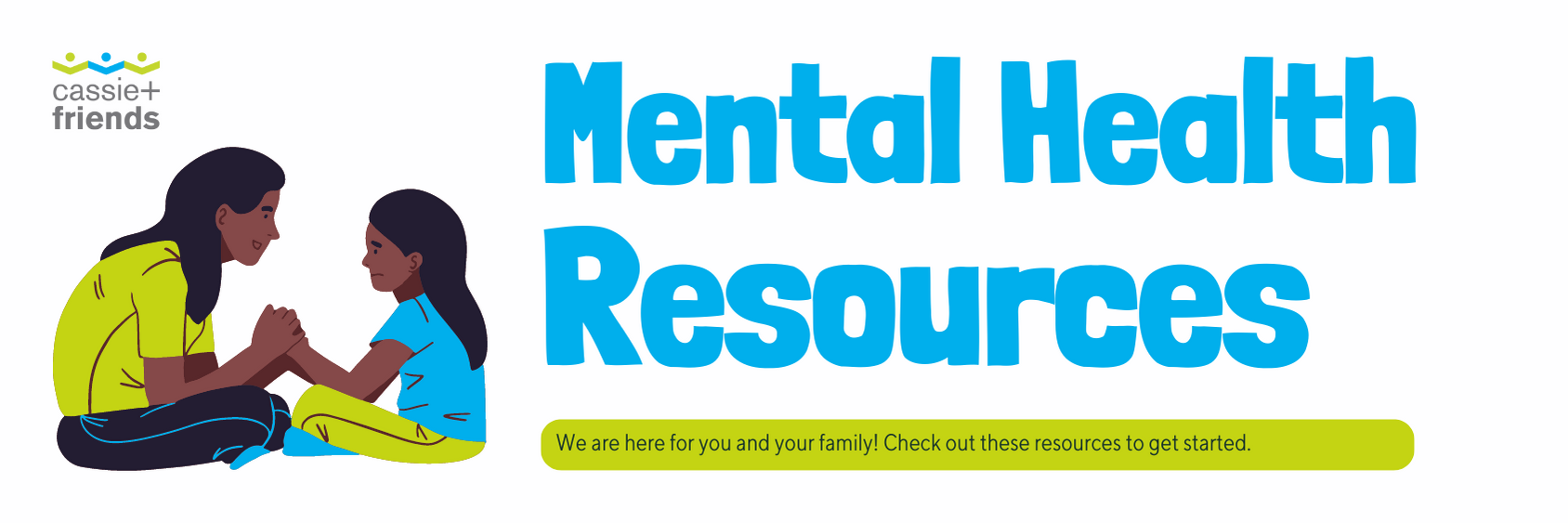Mental Health Impacts the Entire Family
Did you know that children with chronic medical conditions are TWICE as likely to have psychosocial challenges? Additionally, a subset of children with JA are at increased risk for social-emotional concerns such as anxiety, depression, have traumatic stress, trouble sleeping and lower quality of life. The same is true for kids living with chronic pain (Source: Partnering for Pain & Solutions for Kids in Pain).
The mental health impacts of navigating life with a pediatric rheumatic disease don’t stop with the affected family. Caregivers report lower quality of life and increased emotional distress not to mention the financial burden and added stress of lost time from work due to medical appointments, staying home with your sick child at more. Siblings are also potentially vulnerable to emotional distress and decreased well-being.
Though this is a daunting and often overwhelming aspect of life with pediatric rheumatic disease, there are many resources to turn to throughout your journey. And we hope you take comfort in knowing that the Cassie + Friends community is here to help.
Ask the Expert: Youth Mental Health in Pediatric Rheumatology
WATCH: As a part of our 2023 Youth Mental Health Strategy, we were pleased to host a roundtable conversation with experts from across the country highlighting the need for better mental health screening, protocols and services in pediatric rheumatology across the country. It also highlighted the importance of open, collaborative discussion between youth, their families, and their healthcare teams about the many impacts of rheumatic disease in children that go far beyond the physical.
Also discussed were the topics of recent research outcomes, how clinicians and researchers can work towards improving care for patients, and the positive impact that access to a community of support can have on children and youth navigating rheumatic disease.
We hope that this conversation provides both insights and hope to our families navigating juvenile arthritis and other childhood rheumatic diseases about what can be done in the short and long term to better support mental health needs for both children and parents/caregivers.
Thank you to our impressive panel consisting of Dr. Andrea Knight, Pediatric Rheumatologist, SickKids; Dr. Ashley Danguecan, Child Psychologist, SickKids; Dr. Elizabeth Stringer, Pediatric Rheumatologist, IWK Health Centre; and, Kayla Mozill, Youth Speaker, AB/NS/ON for your incredible knowledge and dedication to pediatric rheumatology and further youth mental health support across the country.
When is it time to get more help?
- When should we get more help: If symptoms of anxiety/depression are significantly interfering with your or your child/teen’s functioning at home, school, or with peers
- If after learning and implementing strategies your child/teen is still suffering
- If anxiety, depression, or behaviour concerns are interfering with medical needs
Additional resources:
- Anxiety Canada
- Feelingsfirst.ca: Important concepts around Social and Emotional Development in the early years of childhood, for parents and caregivers.
- Wellness Together Canada: Free counselling, online courses, and self-guided programs
- Provincial resources:






